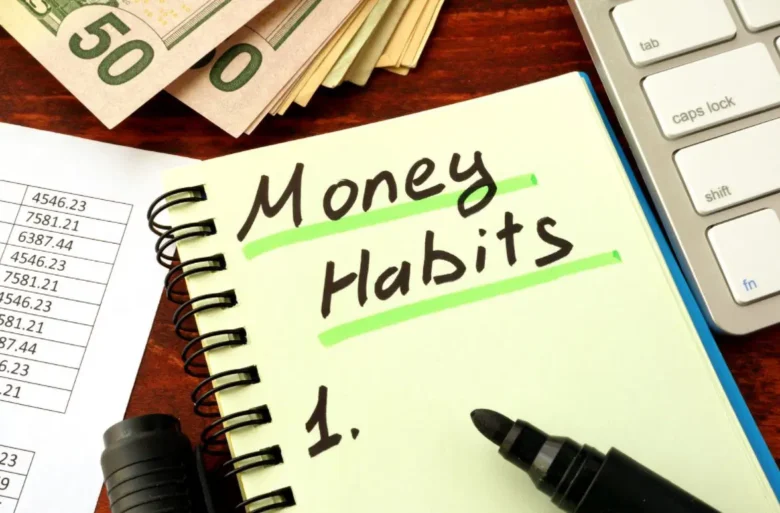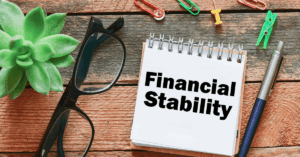Just as working out at a gym for one week won’t make you an Olympic marathon runner, developing good money habits requires sustained effort over time. Here are nine personal finance tips to get started with personal finances. Establish a regular time and date to pay your bills; failure to do so in an orderly fashion could result in missed bills or payments being late.
1. I Want to Save
One effective strategy for saving is “paying yourself first.” Each pay period, set aside some portion of your paycheck or income into savings before spending any of it on anything else—an effective strategy for long-term saving while taking into account necessary expenses such as bills and loans.
To avoid impulse buying, use an app to keep tabs on how much you spend and set a 24-hour waiting period before any potential purchase is made. Combine these new habits with existing ones, like checking account balances or debt payments daily—each step toward your financial wellness goals builds momentum toward financial wellness!
2. I Want to Spend
Financially speaking, your daily habits can have a dramatic effect. From saving for retirement or building an emergency fund to working off debt, understanding how your spending and saving habits impact the future you envision for yourself is of critical importance.
Make an effort to track your expenses for several months, noting any recurring costs like coffee runs and subscriptions you barely use. Assess your values and priorities accordingly; having a healthy relationship with money takes time but will pay dividends in the end.
3. I Want to Pay Off Debt
Micro habits you can adopt to increase your financial well-being can range from brushing your teeth or fastening a seat belt to managing money so as to meet short- and long-term goals. Start by creating a budget based on your income and expenses, and track every expense by collecting receipts or using pay stubs as proof.
List all your debts from smallest to largest and use the “debt snowball” method to pay off the smaller ones first (such as student loan debt or car loans). Once complete, apply that payment amount toward another smaller debt until all consumer debt is cleared away.
4. I Want to Manage My Budget
Budgeting is key to building a solid financial base. Start by tracking your income and expenses for several months to understand where you’re spending your cash. Once you have an understanding of your spending, create a savings plan. One effective method for doing these tasks is the “pay yourself first” technique: depositing a set percentage or amount from each take-home pay into savings before spending on needs or wants.
Allocate 60% of your take-home pay to living expenses such as housing, transportation, and food costs while saving the remaining 20% in an emergency fund, investments, or for future goals.
5. I Want to Manage My Credit Card
While brushing our teeth and wearing our seat belts are both beneficial habits to implement daily, there are other practices we should avoid, like incurring credit card debt.
Make it part of your routine to spend less than you earn and stay aware of your account activity by regularly monitoring it. Add checking account activity into your morning or evening routine along with checking email, social media, and other tasks—this strategy is known as habit stacking; it helps create momentum with new behaviors that will improve financial wellness over time.
6. I Want to Manage My Loans
One of the best money habits you can form is spending less than you earn. To find savings, record all expenses for a month and subtract them from your net income. This exercise should assist in identifying potential areas for additional savings.
Consider opening a personal savings account that you can automate transfers from your checking account into each paycheck before bills or spending occurs. By adding this step to your budget, it will help build a solid financial foundation for the future. Discover local resources offering financial counseling or debt management support.
8. I Want to Manage My Investments
If your aim is to invest for financial goals such as purchasing a home, funding a college education for your child, or saving for retirement, it’s essential that you learn and implement effective investing strategies. Consider seeking professional advice or following trustworthy sources of information regarding investing.
Good money habits are microroutines that help improve your finances through small, easy-to-implement efforts that add up over time. For instance, packing lunch for several days out of each week can save money and decrease debt reliance, and checking account balances each morning helps assess spending trends while setting financial priorities for the day ahead.
9. I Want to Manage My Taxes
Just as regular brushing of teeth or wearing seat belts are healthy habits that we engage in daily, so are financial wellness practices. Focusing on setting measurable and attainable goals will keep you motivated while giving you confidence that healthy money habits will continue to benefit your life in 2024 and beyond.
Begin by creating an action plan for some healthy financial habits to ensure a more secure future; start today to build a better one.



